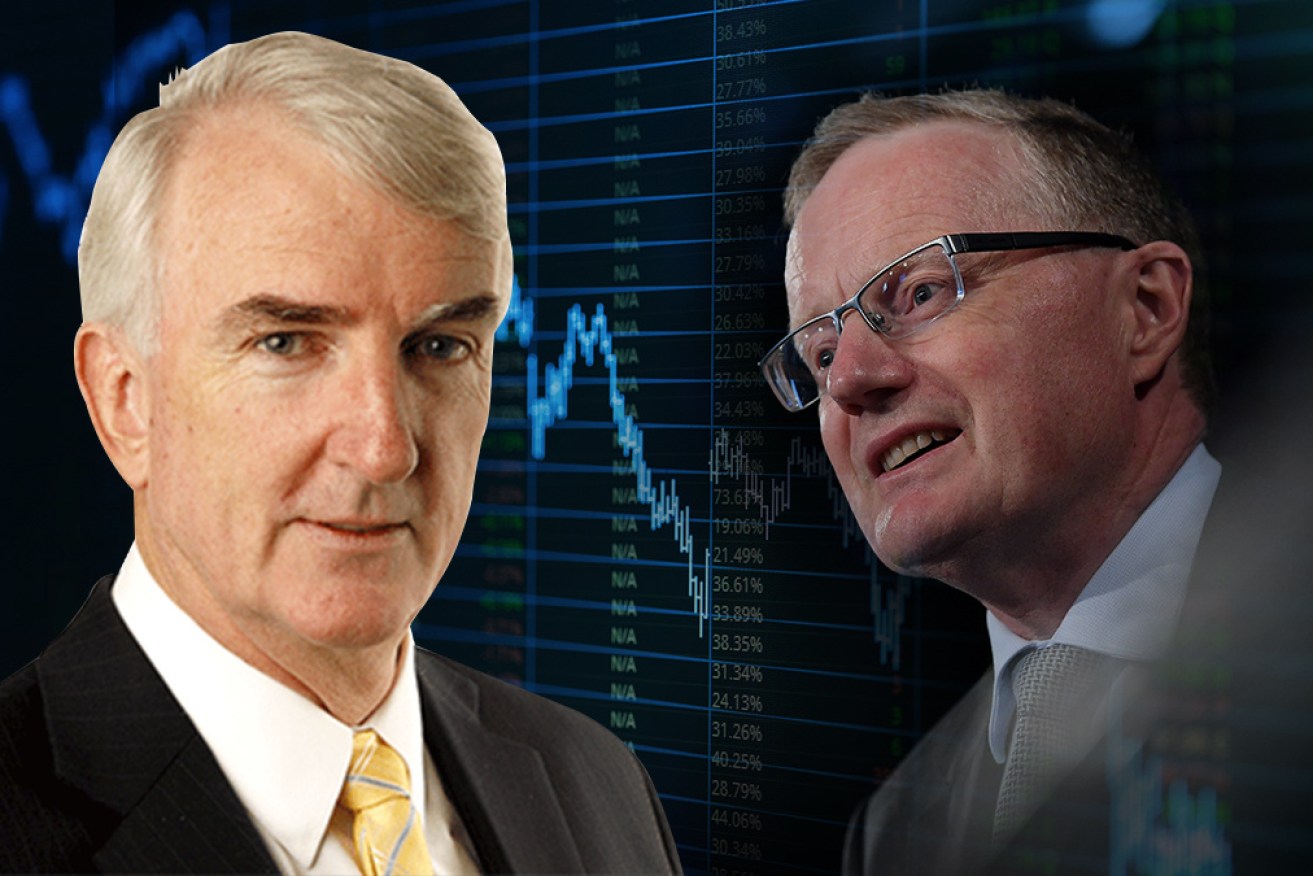Pollyanna RBA goes begging for investment


Michael Pascoe previews the RBA's announcement. Photo: TND
“Please invest in Australia. Aw, come on, it’s a great country and we’ve done everything we can with interest rates. Please, please invest. Federal government? Private sector? Anyone? Pretty please?”
That’s not quite what the Reserve Bank governor told the National Press Club on Wednesday, but it’s close.
Dr Philip Lowe’s speech worked hard at seeing the glass half full for the year ahead, with the hope that interest rates could stay exactly where they are for a long time to come.
It’s sometimes hard not to think Pollyanna has a senior role at the RBA when the bank sticks resolutely with its forecast of 2.75 per cent economic growth this year despite the drought, bushfires and coronavirus.
But it was in the question-and-answer session that the governor underlined what he regarded as the two biggest issues facing the economics profession and the country – issues much more important than whether the government delivers a small budget surplus or deficit.
The first is the balance between monetary policy (the RBA setting interest rates) and fiscal policy (the government spending money). I’ll come back to that.
The second was the need for investment to promote productivity growth and lift living standards, the question of what “scope is there for fiscal policy and government policy to address the investment issues I talked about”.
In his speech, Dr Lowe provided an abbreviated version of the investment shopping list he’s been pushing for years: “The list of areas where further investment would improve our future prospects is well known. It includes investments in infrastructure, in human capital, in energy production and distribution, in new data technologies, and in measures to deal with climate change and its effects.”
(There are of course no climate denialists/sceptics/centrists/Neanderthals in our central bank. Dr Lowe said the bank’s job wasn’t to debate what to do about it but to understand the financial and economic impact of climate change, including – National Party please note – the probability of stranded assets. Yes, fossil-fuel projects will go broke.)
The government must do more
He went further in Q&A, saying that what would get him excited on budget night would be “a renewed enthusiasm for investment in the country because I think that’s in our collective interest”.
It’s the missing piece in the national puzzle for a country with great fundamentals. And, yet again, the ball was thrown to the government – if it cared to catch it.
“You can undertake investments that don’t affect the current budget deficit,” he said, and acknowledged state government spending and the federal government’s $100 billion program over 10 years, but suggested there was much more that could be done.
“In an environment where interest rates are very low – yesterday the government’s borrowing costs for 10 years were essentially the lowest they’ve been since Federation – are there investments that the government could make or could encourage the private sector to make that would yield risk-adjusted rates of return greater than the lowest interest rates on record?
“For me, that’s a much more important issue worth thinking about. Can the government use its balance sheet or create an environment where the private sector wants to use its balance sheet to undertake investments the country needs?”
The governor certainly didn’t say it, but it’s hard to see much progress towards the bank’s twin goals of full employment and its inflation target without a renewed government effort.
The rules of the game are changing
Dr Lowe was careful not to buy into the question of immediate fiscal policy – what the government might or should be doing with budget spending – but he did venture into the longer-term challenge for governments and central bankers at the limits of what interest rates can achieve. With “no reflection on where we are right now”: “Longer term, there is an issue about the intersection between monetary and fiscal policy.
“The standard way of thinking for the last 20 years has been that monetary policy really is a stabiliser – it deals with the economic cycle, and fiscal policy just deals with structural issues.
“But with interest rates as low as they are, there is limited scope in the future probably for monetary policy to play exactly the same role that it used to play.
We don’t have the capacity to lower interest rates a lot further and we have some other tools, but how effective they’re going to be, we’re unsure.
“I think there is a debate or a discussion we’ll have to have in the economics profession … does the relationship between monetary policy and fiscal policy change and can, or should, fiscal policy play a greater role in economic stabilisation?
“Is there more that fiscal policy can do if monetary policy can’t do it, or are there so many problems in using fiscal policy that it’s too hard to do?
“This debate, or this discussion, is taking place between the Reserve Bank and Treasury and in the international forums that I go to with the other central bank governors. It’s something we talk about a lot.
“If we’re constrained, what else can be done? And one thing that could be done is using fiscal policy, but fiscal policy comes with problems as well.”
That big question will remain hanging for Australia as long as the unemployment trend doesn’t worsen, as long as there is even a little monetary firepower left.
But it’s a question that needs to be dealt with before we get to that crisis level, should it happen.
Be careful what you wish for
The money market and most economists are still betting on another rate cut, but Dr Lowe warned that should not be hoped for.
On the overall question of the balance of interest rate probabilities: “At the moment, the probability of an interest rate increase soon is very low. Things would have to change tremendously for us to be even contemplating higher interest rates.
“It’s possible interest rates could come down. I’m hoping that that does not happen because the scenario in which we would be reducing interest rates is one where we’re not making progress towards full employment and inflation targets.
“It’s possible and if we don’t make further progress, that we find growth disappoints again on the downside … so the probability of an interest rate cut is obviously higher than an increase.
“My hope, and I think it is a reasonable expectation, is that we could have a period of stability again.”
And so hope all of us.
My suspicion remains that drought, fire, coronavirus and bad Newspolls will achieve what economic reasoning could not – force the federal government to care less about its precious surplus.
Whether the government is capable of the much bigger leap into investing in the nation, there’s no sign of that much vision in Canberra.








